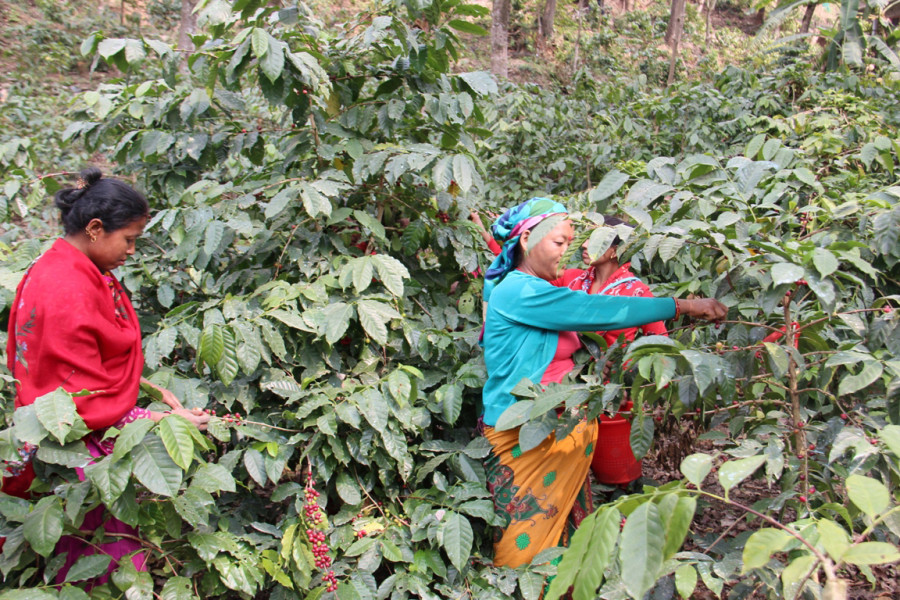Money
Nepal is a Bourbon coffee country, report says
The coffee-genotype DNA sequencing research report released by the EU-Nepal Trade and Investment Programme has recommended that Nepal diversify the genetic landscape in order to mitigate the risk of having a single uniform genetic background.
Post Report
Most coffee in Nepal is organically grown, and they are Bourbon, according to a research report.
Nepal is a Bourbon coffee country, said the coffee-genotype DNA sequencing research report released by the EU-Nepal Trade and Investment Programme on Monday.
The report has recommended that Nepal diversify the genetic landscape in order to mitigate the risk of having a single uniform genetic background.
“Though genetic uniformity can be an advantage as Bourbon varieties are climate resilient and adapted to smallholders, there is a risk as the varieties are susceptible to leaf rust,” the report says. “Having a vast majority of Bourbon may lead to a major rust outbreak as happened in Latin America during the last decade.”
The research was carried out in a bid to support the long-term objectives of improving the Nepal coffee industry’s productivity and climate change adaptability by identifying the most appropriate coffee varieties in Nepal.
Environment, farming, post-harvest practices and the genetics of coffee plants determine the agronomic performance of coffee trees.
Samples from both government and private nurseries, which have been distributing plantlets to farmers, were collected to understand the genetic landscape of Nepali coffee, according to the statement issued by the EU-Nepal Trade and Investment Programme.
During the research 104 samples of 26 coffee varieties from 13 nurseries across the country were collected and analysed.
The research found that 70 percent of the total samples have a clear Bourbon genetic fingerprint, while 98 percent of the samples collected from private nurseries bearing local names have a clear Bourbon genetic fingerprint, the report said.
The report also found that the genetic landscape in private and government nurseries is different.
According to the report, 98 percent of samples from private nurseries are with Bourbon genetic fingerprints while government nurseries contain diverse varieties including introgressed varieties and Ethiopian-related coffee plantlets.
During the research, 80 percent of the collected samples are traditional Arabica.
Of the total samples, 71 percent represent the Bourbon variety while 16 percent and 3 percent are introgressed and Ethiopian-related, respectively.
The research report was jointly produced by the National Tea and Coffee Development Board, the Coffee Research Programme of the Nepal Agriculture Research Council with the technical support of the EU-Nepal Trade and Investment Programme.
“The study was instrumental in broadening the better understanding of existing varieties in the country and exploring measures to improve selection, grafting and clones of high-potential vegetal material,” the statement reads.
“DNA Sequencing was conducted to identify the available coffee varieties of Nepal because our farmers are giving their own names for the coffee they produce when they planted in their local farms as per their convenience,” said Jeet Narayan Chaudhary, senior scientist of Nepal Agriculture Research Council.
“However, these locally named coffee genetic varieties are not identified by DNA Sequencing. The research was conducted to identify the appropriate varieties for Nepal through DNA sequencing.”
Coffee scientist Dr Christophe Montaganon highlighted the features of different varieties of coffee and stressed the need to promote climate-resilient coffee varieties in Nepal.
The report dissemination programme was organised to sensitise the major coffee stakeholders about the genotype varieties existing in Nepal and their implications on future production, productivity, quality, preferences, and promotional measures and strategies, reads the statement.




 9.51°C Kathmandu
9.51°C Kathmandu














